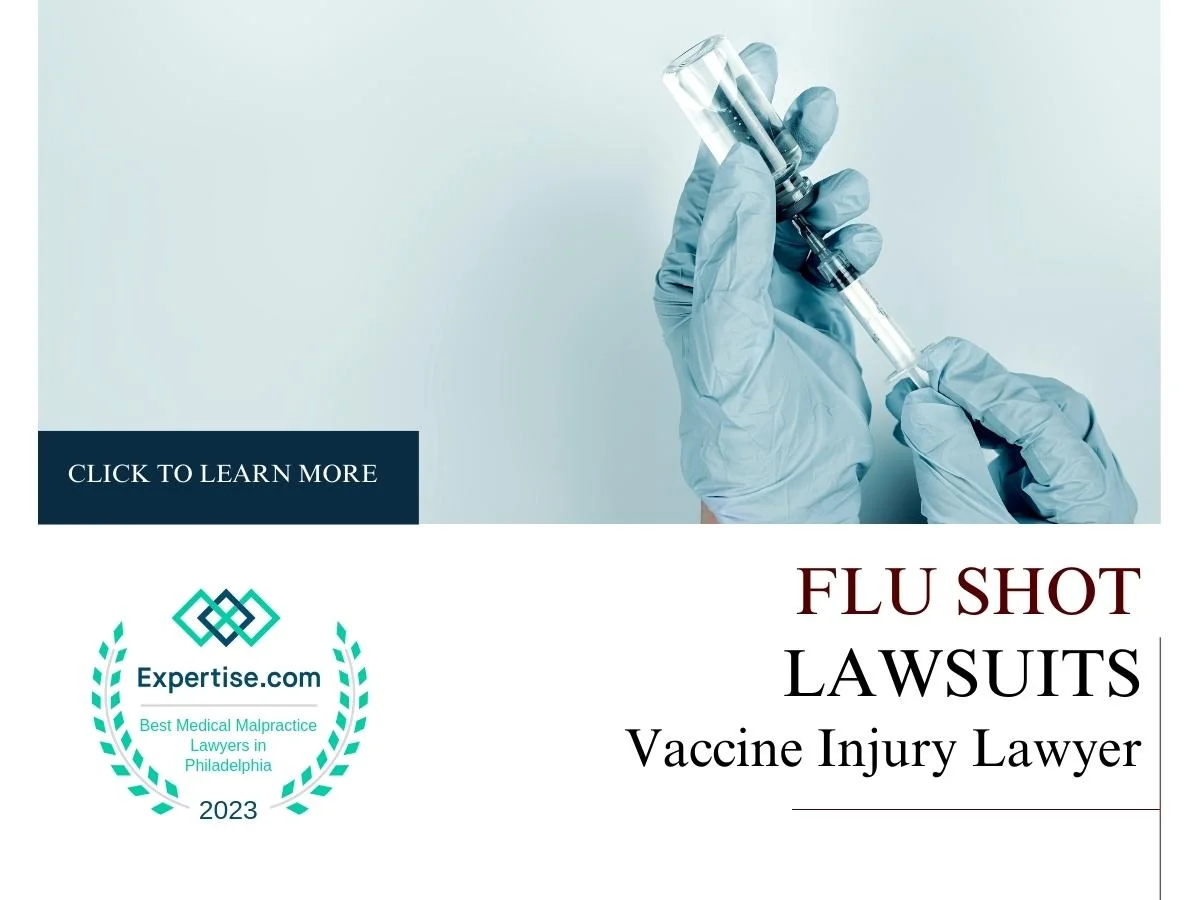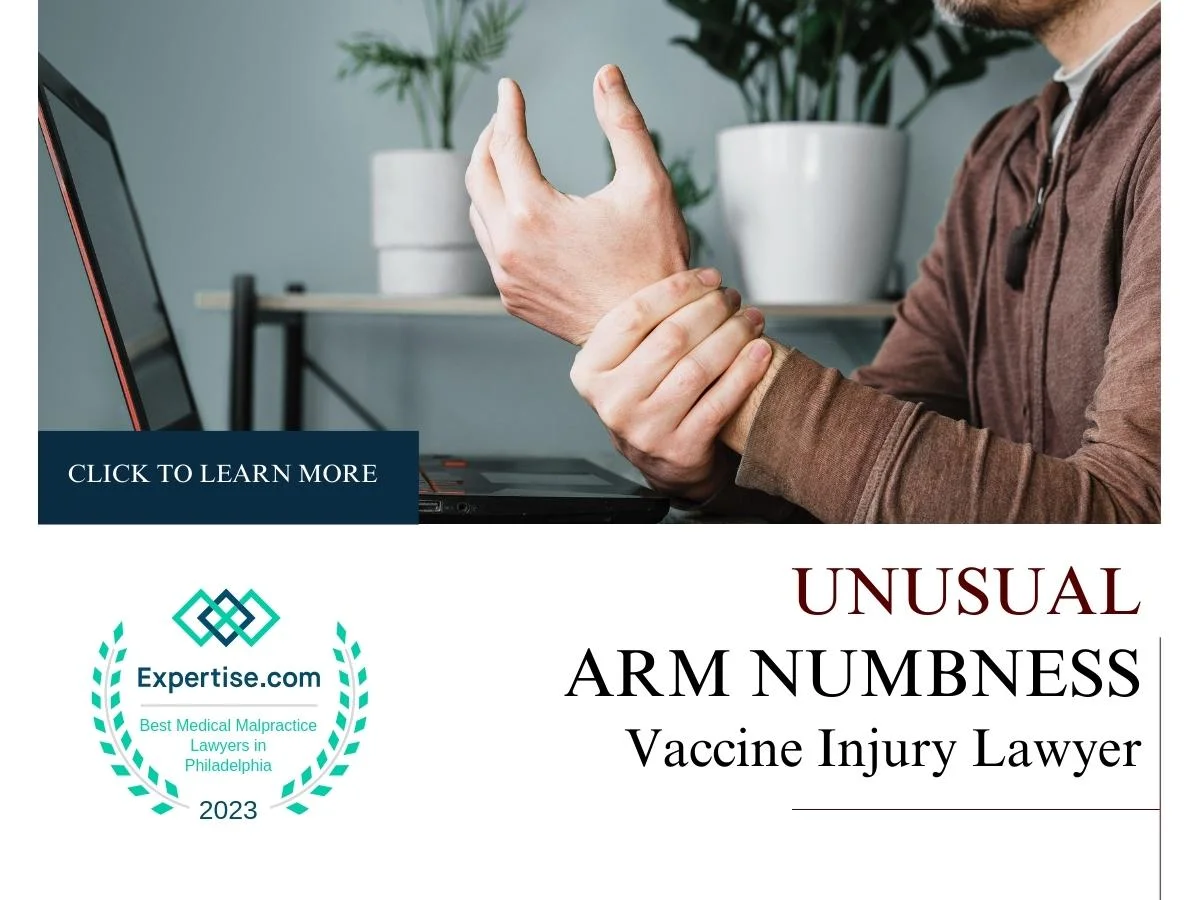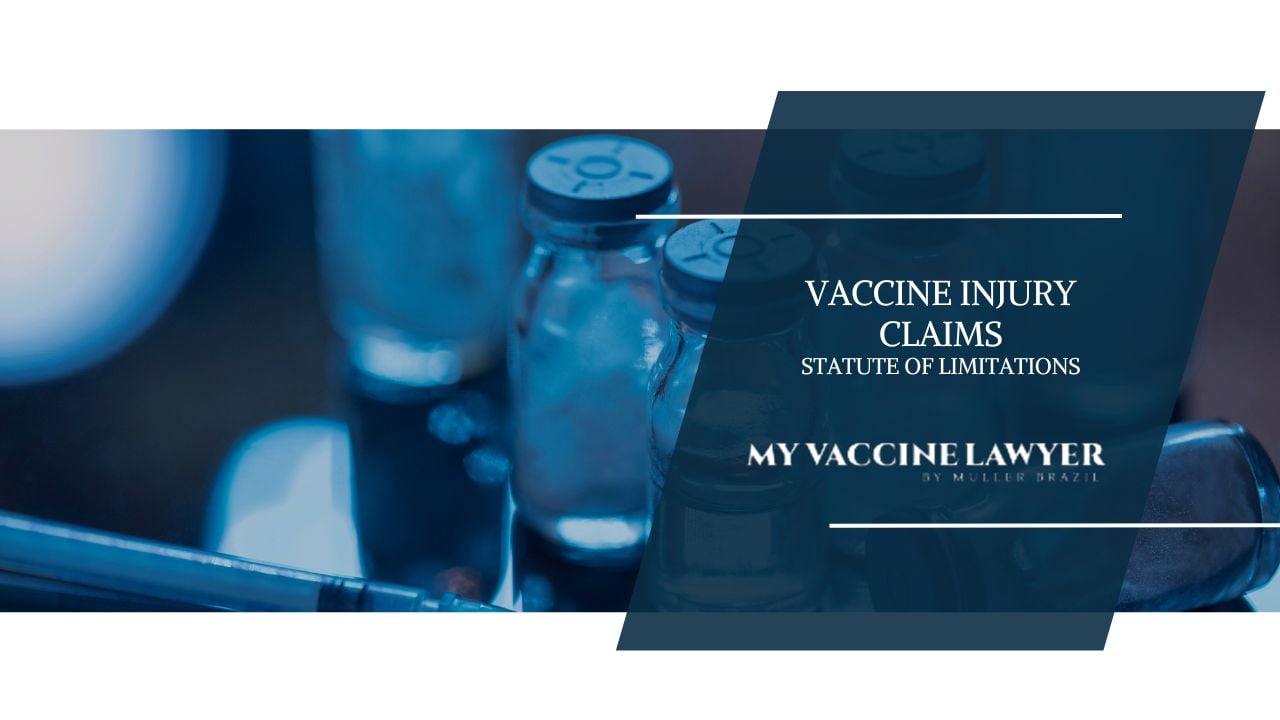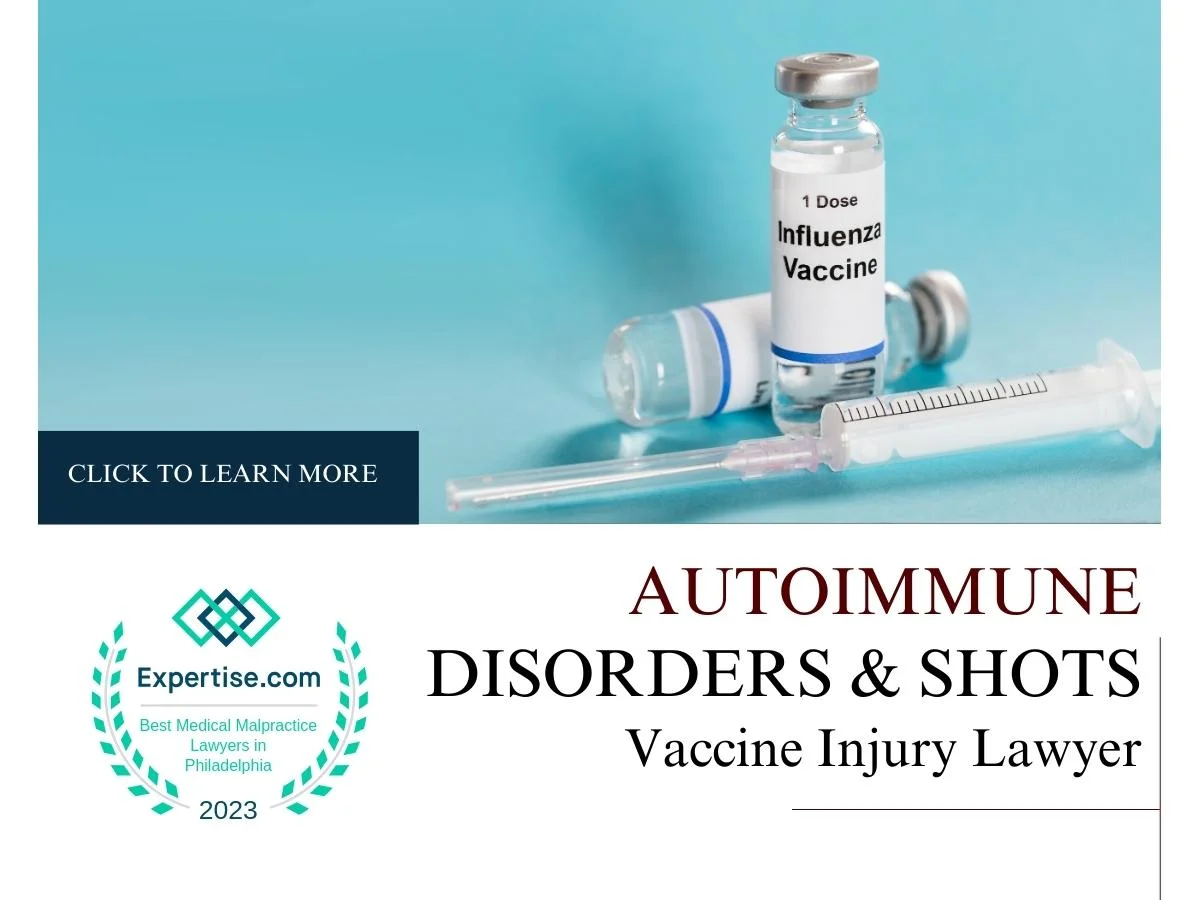Flu Shot Lawsuits - What You Need to Know for Compensation
If you've suffered shoulder pain or Guillain-Barre Syndrome, after getting a flu shot vaccination, you may be eligible for compensation through the...
7 min read
Vaccine Injury Law Resources / Paul Brazil / Can the Flu Shot Cause Autoimmune Disorders?
 Paul Brazil
:
May 10, 2023 8:00:00 AM
Paul Brazil
:
May 10, 2023 8:00:00 AM
Being diagnosed with an autoimmune disorder after a flu shot, you may be eligible for compensation through the National Vaccine Injury Compensation Program (VICP). Autoimmune disorders like Guillain-Barre Syndrome (GBS), Acute Disseminated Encephalomyelitis (ADEM), and Chronic Inflammatory Demyelinating Polyneuropathy (CIDP) can, in rare cases, be triggered by vaccines. An experienced vaccine injury lawyer can help you navigate the complex claims process and explore your legal options.
Autoimmune disorders occur when the immune system, designed to protect the body from foreign invaders like viruses and bacteria, mistakenly attacks its own healthy cells and tissues. This can result in chronic inflammation, pain, and damage to various body parts.
There are many different types of autoimmune disorders, and they can affect different organs and tissues in the body. Autoimmune disorders can significantly impact a person's quality of life, and there is currently no cure for most of these conditions. However, various treatments available can help manage symptoms and improve quality of life, such as medications and lifestyle changes.
Suppose you have been diagnosed with an autoimmune disorder that you believe may be linked to a vaccine. In that case, speaking with an experienced vaccine injury lawyer is important. The National Vaccine Injury Compensation Program provides financial compensation to individuals who have suffered a vaccine injury, including autoimmune disorders. We can help you explore your legal options and determine whether you are eligible for compensation.
The flu shot is generally considered safe for most people. However, in rare cases, the seasonal influenza vaccine may trigger the onset of autoimmune disorders, such as Guillain-Barre Syndrome (GBS), Acute Disseminated Encephalomyelitis (ADEM), and Chronic Inflammatory Demyelinating Polyneuropathy (CIDP). These autoimmune disorders affect the central nervous system, impacting a patient's ability to live a normal life. Patients may experience difficulty walking, eating, or talking. If you were diagnosed with an autoimmune disorder following a flu shot, keep reading!
Guillain-Barre Syndrome (GBS) is a rare disorder when the immune system damages nerve cells, resulting in muscle weakness and sometimes paralysis. GBS is listed as a known side effect of the influenza vaccine on the Vaccine Injury Table. The Department of Health and Human Services (HHS) has acknowledged the link between GBS and the flu vaccine.
According to the CDC, 3,000 to 6,000 people in the United States develop Guillain-Barre Syndrome. Common symptoms of GBS include weakness and tingling in the feet and legs, abnormal walking, problems with coordination, trouble speaking or swallowing, and shortness of breath. Symptoms of GBS typically appear within three to forty-two days after receiving a flu shot.
Acute disseminated encephalomyelitis (ADEM) is a rare condition that affects the nervous system. It is a widespread attack of brain and spinal cord inflammation that damages the protective coating around nerve fibers called myelin. ADEM is triggered by viral or bacterial infections. Still, it can also be triggered by flu shots and MMR vaccines.
Common symptoms associated with ADEM include fever, fatigue, headache, nausea, vomiting, seizures, and coma. While most people with ADEM fully recover, some experience long-term or permanent side effects, such as vision loss in one or both eyes, weakness and/or paralysis, and difficulty with coordination.
Chronic inflammatory demyelinating polyneuropathy (CIDP) is a rare neurological disorder related to Guillain-Barre Syndrome. CIDP occurs when the immune system damages the myelin sheath of the peripheral nerves, causing progressive weakness and paralysis in the arms and legs.
CIDP can be triggered by the seasonal flu shot. Common symptoms of CIDP include:
Autoimmune disorders can significantly impact a person's quality of life, causing a range of debilitating symptoms that can affect their ability to work, care for themselves, and engage in their daily activities. Fortunately, legal remedies are available for those diagnosed with an autoimmune disorder after receiving a vaccine.
The National Vaccine Injury Compensation Program (VICP) provides financial compensation to individuals who have suffered a vaccine injury. This program offers a way for those harmed by vaccines to obtain monetary reparation for their losses and expenses. The process for filing a VICP claim can be complex, so it's essential to work with experienced vaccine injury attorneys who can guide you through every step.
Our legal team at My Vaccine Lawyers has helped many clients receive compensation through the VICP, and we're ready to help you too.
Contact us today to schedule a free consultation. We'll help you explore your legal options and determine your situation's best course of action.
Autoimmune disorders triggered by flu vaccines can cause various symptoms, depending on the specific disorder. Some common symptoms may include:
It's important to note that these symptoms can also be caused by other conditions, so it's important to consult a medical professional to determine the underlying cause.
Autoimmune disorders can appear anytime after receiving a flu vaccine. Still, the onset of symptoms typically occurs within a few weeks to a few months following vaccination. It's important to monitor your health closely after receiving any vaccine and report any unusual symptoms to your healthcare provider.
Certain factors may increase the risk of developing an autoimmune disorder after vaccination. These include:
It's important to note that even if someone has one or more of these risk factors, the chances of developing an autoimmune disorder after vaccination are still very small.
There is no cure for autoimmune disorders, but treatments are available to manage symptoms and improve quality of life. Treatment options may include medications, physical therapy, and lifestyle changes.
The National Vaccine Injury Compensation Program (VICP) is a federal program that provides financial compensation to individuals injured by certain vaccines. If someone believes they have been injured by a vaccine, they can file a claim with the VICP.
The VICP covers certain vaccines, including the flu vaccine, and certain injuries or illnesses that may be caused by vaccines. To be eligible for compensation, the injury or illness must meet certain criteria and have occurred within a certain time frame following vaccination.
The process for filing a claim with the VICP can be complex, and working with a vaccine injury lawyer is recommended to ensure the best possible outcome.
The process for filing a claim with the VICP can be complex, so it's important to have a lawyer with experience in vaccine injury claims to guide you. The first step is to gather all medical records of the vaccine and the resulting injury. Your attorney will then file a petition with the VICP, which initiates the legal process. A government attorney will be assigned to your case, and a hearing will be scheduled to determine if the injury is compensable. If your claim is successful, your attorney will negotiate a settlement with the government or, if necessary, take your case to trial.
Compensation through the VICP can include reimbursement for medical expenses, lost wages, and any discomforts and suffering . The amount of the compensation usually depends on the severity of the injury and the impact it has had on the person's life.
Yes, there are time limits when you file a claim with the VICP. Usually, claims must be filed within three years of the onset of symptoms or within two years of death if the injury resulted in a fatality. However, there are exceptions to these time limits, so it's important to speak with a lawyer as soon as possible to determine your options.
Someone can file a claim with the VICP if diagnosed with an autoimmune disorder before receiving a flu vaccine. However, they may face challenges proving that the vaccine caused the injury, as the autoimmune disorder may have been present before vaccination.
Yes, someone can still file a claim with the VICP if they received a flu vaccine many years ago and were recently diagnosed with an autoimmune disorder. The time limits for filing a claim are based on the onset of symptoms, not the date of vaccination. However, it may be more difficult to prove that the vaccine caused the injury if there is a significant amount of time between the vaccination and the onset of symptoms.
Resolving a SIRVA claim typically involves several stages, which may include the following:
Initial consultation: The first step in resolving a SIRVA claim is to speak with an experienced attorney who can evaluate your case and help you understand your legal rights and options.
Gathering evidence: Once you have decided to pursue a SIRVA claim, your attorney will gather evidence to support your case. This may include medical records, vaccine records, and other injury documentation.
Filing a claim: If you seek compensation through the National Vaccine Injury Compensation Program (VICP), your attorney will file a claim with the program on your behalf. If you are pursuing a civil lawsuit against the vaccine manufacturer or other responsible parties, your attorney will file a lawsuit in court.
Negotiating a settlement: In some cases, the vaccine manufacturer or other responsible parties may be willing to negotiate a settlement to avoid a lengthy court battle. Your attorney will work with you to negotiate a fair settlement compensating you for your injury.
Litigating the case: If a settlement cannot be reached, your case may proceed to trial. Your attorney will represent you in court and present evidence to support your claim.
Appeals: If the case is not resolved in your favor, you may have the option to appeal the decision to a higher court.
Resolving a SIRVA claim can be complex and time-consuming. It's important to work with an experienced attorney who can help guide you through each stage of the process and help you understand your legal options and the potential outcomes of your case.
The duration of SIRVA case settlements can be impacted by several factors, including:
The complexity of the case: Cases that involve more complex legal issues or a greater number of parties may take longer to settle than simpler cases.
Strength of the evidence: The strength of the evidence supporting your claim can impact how long it takes to settle your case. If your evidence is strong, the vaccine manufacturer or other responsible parties may be more likely to settle the case quickly rather than risk a court battle.
Willingness to negotiate: The vaccine manufacturer or other responsible parties may be more willing to negotiate a settlement if they believe it is in their best interest. The case may take longer to resolve if they are willing to negotiate or offer an adequate settlement amount.
Backlog of claims: If there is a backlog in the National Vaccine Injury Compensation Program (VICP), it may take longer to process your claim and reach a settlement.
Court schedule: If your case proceeds to trial, the court's schedule can impact how long it takes to resolve.
Appeals process: If the case is appealed, it can extend the duration of the settlement process.
Overall, the duration of a SIRVA case settlement can be unpredictable. Working closely with an experienced attorney can help you navigate the legal process and help you resolve your case more efficiently.
Paul Brazil is a native of Dunmore, Pennsylvania and a graduate of Dunmore High School. For his undergraduate education, he attended Bloomsburg University where he majored in political science. He then went on to earn his JD from Widener University School of Law. Following graduation from law school, Mr. Brazil worked at a large Philadelphia civil defense firm where he litigated workers’ compensation claims and Heart and Lung Act cases. In 2012, he joined with his coworker Max Muller to form Muller Brazil.

If you've suffered shoulder pain or Guillain-Barre Syndrome, after getting a flu shot vaccination, you may be eligible for compensation through the...

Experiencing arm numbness after receiving a vaccine is a common concern. While vaccines are important for preventing serious illnesses, they can...

In the United States, if you experience a vaccine injury, you have three years from the day the injury symptoms first show up to file a claim under...
